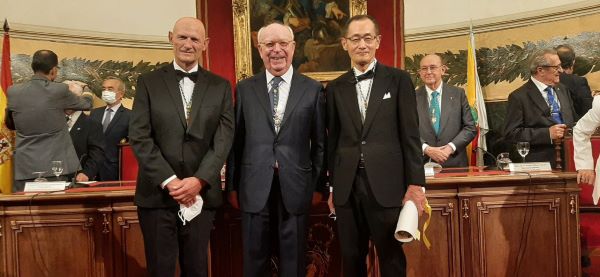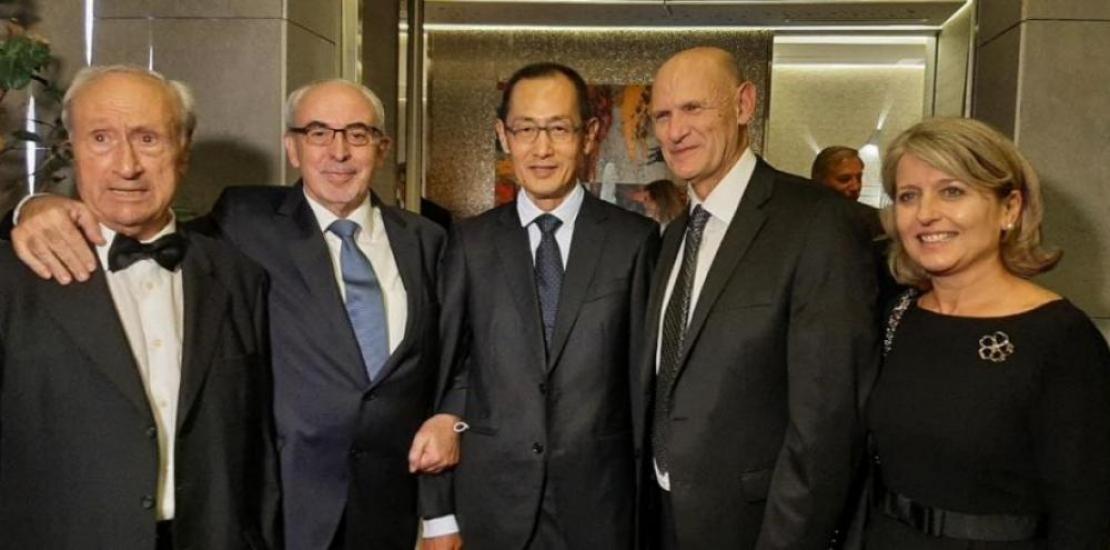UCAM conducts research into human organ regeneration with Altos Labs
UCAM is the only university in Spain working with the American biotech company
The significant shortage of organs for transplantation is influenced by,
among other factors, lower mortality in road accidents, improved treatment of
patients, and increased life expectancy. This is compounded by the problem of
the organ rejection rate, which in Spain is 25-20% for kidneys and livers.
Last year there were more than 20 livers and 20 kidneys rejected only in the
Region of Murcia.
This has led to the search and promotion of new lines of research, such as the
one being developed by the Universidad Católica de Murcia in collaboration
with the US biotech company Altos Labs, led by UCAM professor Juan
Carlos Izpisúa and in collaboration with the Hospital Clínic de Barcelona.
Using cell regeneration, researchers are attempting to restore the function of
damaged organs of patients and to rejuvenate removed organs intended for
transplantation. ‘What we started a few months ago is beginning to become a
reality,’ says Dr Izpisúa Belmonte, for whom ‘UCAM being part of this
reality is a source of pride’.
Since its foundation, the Universidad Católica de Murcia has invested
more than 200 million euros in research, ‘aiming to achieve advances in the
fields of health, medicine, food or sport; to cure diseases, to heal human
lives’, as explained by the president, José Luis Mendoza. UCAM promotes
and finances research projects such as the ones previously developed with the
Salk Institute in California, and currently with Altos Labs.
Yamanaka, Doctor Honoris Causa
For the Japanese professor Shinya Yamanaka, Nobel Prize in Physiology
and Medicine 2012 and senior scientific advisor in Altos Labs, accepting the
appointment as Doctor Honoris Causa by the Universidad Católica de
Murcia was ‘a great honour’. He received the proposal last Thursday night in
Madrid by the president of the institution in person, José Luis Mendoza.
The meeting was also attended by Dr Pedro Guillén, UCAM Extraordinary
Professor of Sports Traumatology and founder of the Clínica CEMTRO;
Juan Carlos Izpisúa, UCAM Extraordinary Professor of Developmental
Biology and Director of the Altos Labs Science Institute (USA); and Estrella
Núñez, UCAM Vice-Rector of Research.
Dr Yamanaka won the Nobel Prize for the discovery of cellular
reprogramming, giving rise to a new branch of medicine: regenerative
medicine. On the application of this research, he said that ‘it takes ten to thirty
years from the start of basic research to the clinics, and sixteen years have
passed. We scientists are doing our best but cannot predict when we will be
able to take this technology to everyone’.
“Historic event” at the Spanish Royal Academy of Medicine
This is how the President of the Spanish Royal Academy of Medicine,
Eduardo Díaz-Rubio, described the event held on Thursday at the
Academy’s headquarters in Madrid, in which UCAM professor Juan Carlos
Izpisúa was awarded the Medal of Honour ‘for his scientific, academic and
health work’ and his ‘great and significant support’ for this institution; and
Shinya Yamanaka, Nobel Prize in Medicine, was awarded the Doctor Honoris
Causa degree for his “relevant scientific merits”.

Doctors Pedro Guillén and Arturo Fernández-Cruz (President of the
Fundación Fernández-Cruz), read the laudations.




